Miraculous Effect - Plant Growth Regulator
Plant growth regulators, a class of chemicals with a pivotal role in influencing plant growth and development, encompass a range of functions in the realm of crop management. These functions encompass breaking dormancy, stimulating germination, facilitating stem and leaf growth, encouraging flower bud formation, promoting fruit ripening, generating seedless fruits, and restraining the growth of stem and leaf buds. The judicious utilization of these regulators, tailored to the specific demands of production, is essential to achieve enhanced and consistent crop yields. Notably, plant growth regulators exhibit distinct advantages, including their efficacy at low doses and the potential for substantial returns on investment.
Plant growth substances can be categorized into two main groups: plant hormones and plant growth regulators. Plant hormones, present in minute quantities, are biologically active compounds produced within plants. They are typically synthesized at one location within the plant and transported to other sites where they exert significant influence on plant growth and development. In contrast, plant growth regulators are substances that are synthesized or derived from microorganisms, sharing functions akin to those of endogenous plant hormones. They play a pivotal role in regulating, controlling, guiding, and inducing the growth and development of crops, much like their naturally occurring counterparts. Presently, the agricultural industry benefits from a diverse array of synthetic plant growth regulators, many of which are extensively utilized. Notable examples of these regulators include auxin, gibberellin, cytokinin, abscisic acid, ethylene, and brassin.
Seebio Biotech is your source for original plant growth regulators, including auxin, gibberellin, cytokinin, abscisic acid, ethylene, and brassin, among others. For consultations and inquiries, please contact us at +86-21-58183719 or via email at service@seebio.cn.
Application Areas
(1) Food Crops
Plant growth regulators can enhance the cultivation of food crops in various ways, including promoting seed germination, nurturing robust seedlings, preventing excessive growth, improving seed setting rates, increasing the weight of grains per 1000, averting lodging, and boosting the yield of hybrid rice seed production. Soaking wheat and rice in triasanol and cytokinin can enhance seed germination, promote root development, and foster robust seedling growth. When used in rice at the one-leaf-one-heart stage, paclobutrazol increases tillering, controls plant height, and prevents excessive growth. The use of paclobutrazol in wheat at the one-leaf-one-heart stage also enhances tillering and prevents overgrowth.
(2) Oil Crops
The application of plant growth regulators in oil crops like rapeseed, peanut, soybean, sesame, and others primarily focuses on fostering robust seedling growth, managing growth to prevent lodging, increasing yield, and enhancing stress resistance. For instance, in rapeseed cultivation, the use of paclobutrazole, uniconazole, chlormequatin, and methylpiperium results in shorter and sturdier seedlings with thicker stems and roots, higher transplant survival rates, and improved winter rape cold resistance. In soybean and peanut cultivation, the application of triasanol, brassinolide, cytokinin, and others enhances photosynthesis, prevents premature aging in later stages, improves seed setting rates, and increases yield.
(3) Cash Crops
Plant growth regulators are primarily employed in cash crops such as cotton, tobacco, tea, and others to foster robust seedlings, manage growth to prevent excessive growth, prevent bud and boll drop, improve yield and quality, promote germination, encourage ripening and defoliation, and enhance stress resistance. In cotton production, a combination of methylpiperanium, triaconyl alcohol, sodium dinitrate phenol, and naphthalene acetic acid is used to control plant height, prevent bud and boll drop, and increase boll weight, fiber content, and fiber length. The use of ethephon and thiazuron blends is also essential for ripening and defoliation in machine-harvested cotton.
(4) Vegetables
In vegetable production, plant growth regulators have a significant impact on fostering robust seedling growth, managing growth, preserving flowers and fruits, improving fruit set, melon-setting rates, promoting vegetative growth, and aiding storage and preservation. Triasanol, brassinolide, sodium dinitrate phenol, and gibberellic acid have noticeable effects on promoting vegetative growth and increasing the yield of leafy vegetables. Additionally, cytokinin is effective in preserving greenness and extending the storage period of leafy vegetables.
(5) Fruit Trees
Plant growth regulators can stimulate root development in cuttings, control cutting growth, preserve flowers and fruits, promote young fruit expansion, encourage flower bud differentiation, and enhance fruit quality. Naphthalene acetic acid, indole butyric acid, and indole-naphthalene mixtures are effective in promoting root development in fruit tree cuttings. Chlormequat controls the growth of new shoots in grapes, reducing nutrient consumption and increasing fruit setting rates. Triaconyl alcohol, brassinolide, sodium nitrate, cytokinin, and gibberellic acid are widely used in preserving flowers and fruits and improving fruit setting rates in fruit trees such as citrus, jujube, pear, peach, grape, apple, mango, lychee, and longan.
(6) Flower Gardens
Plant growth regulators promote root development, vegetative growth, flowering, and plant size control in garden flowers. Naphthalene acetic acid, indole butyric acid, indole naphthalene mixtures, and others are widely used in promoting cutting root development in garden flowers and have noticeable effects on root development and transplant survival in large trees. Butyricol hydrazide, cyanocybin, and paclobutrazol are effective in dwarfing flower seedlings and controlling plant type. Cytokinin, gibberellic acid, and others have noticeable effects in promoting flowering and regulating the production period in various flowers.
(7) Edible Mushrooms
Plant growth regulators promote mycelial growth, mushroom emergence, and yield increase. Triasanol and brassinolide have a significant impact on promoting mycelium growth, increasing mushroom production, and boosting yield in mushroom production, including mushrooms, oyster mushrooms, enoki mushrooms, and fungus.
(8) Chinese Herbal Medicines
Plant growth regulators are primarily used for root and tuber medicinal materials to stimulate the growth of these underground parts. Triasanol and cytokinin are particularly effective in promoting rhizome growth. Mepidolium and mequat also have noticeable effects on promoting underground rhizome growth by controlling the growth of aboveground parts.
Product lists
|
Product Name
|
CAS No.
|
Structural Formula
|
|
Sodium 2,4-dichlorophenoxyacetate
|
2702-72-9
|

|
|
2,4-Dichlorophenoxyacetic acid
|
94-75-7
|

|
|
1-Naphthaleneacetic acid(NAA)
|
86-87-3
|

|
|
Mancozeb
|
8018-01-7
|
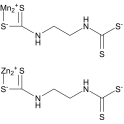
|
|
(+)-Abscisic acid(ABA)
|
21293-29-8
|

|
|
1-Triacontanol
|
593-50-0
|
|
|
Chlorocholine chloride
|
7003-89-6
|

|
|
3-Indoleacetic acid
|
87-51-4
|

|
|
Indole-3-butyric acid
|
133-32-4
|
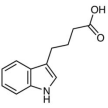
|
|
Forchlorfenuron(KT-30,CPPU)
|
68157-60-8
|

|
|
2-Diethylaminoethyl hexanoate(DA-6)
|
10369-83-2
|
|
|
Thidiazuron
|
51707-55-2
|

|
|
Copper(II) sulfate
|
7758-98-7
|

|
|
Mepiquat
|
15302-91-7
|
|
|
Chlorpropham
|
101-21-3
|

|
|
Trinexapac-ethyl
|
95266-40-3
|

|
|
6-Benzylaminopurine(BA)
|
1214-39-7
|
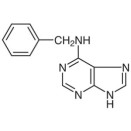
|
|
4-Chlorophenoxyacetic acid sodium salt
|
13730-98-8
|

|
|
Ethephon
|
16672-87-0
|

|
|
Prohexadione calcium
|
127277-53-6
|

|
|
Paclobutrazol
|
76738-62-0
|

|
|
Uniconazole
|
83657-22-1
|

|
|
Diflubenzuron
|
35367-38-5
|

|
|
Gibberellin; Gibberellic acid(GA3)
|
77-06-5
|

|
|
Daminozide
|
1596-84-5
|

|
|
Kinetin; 6-Furfuryladenine
|
525-79-1
|
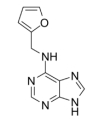
|
|
Sodium 2-nitrophenoxide
|
824-39-5
|

|
|
2-Methoxy-5-nitrophenol sodium salt
|
67233-85-6
|

|
|
24-Epibrassinolide
|
78821-43-9
|
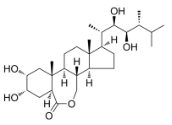
|
|
28-Homobrassinolide
|
82373-95-3
|
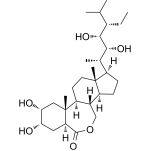
|
|
Maleic hydrazide
|
123-33-1
|

|
|
Dihydrozeatin
|
23599-75-9
|

|
|
Trans-Zeatinriboside(ZR)
|
6025-53-2
|

|
|
6-(γ,γ-Dimethylallylamino)purine
|
2365-40-4
|
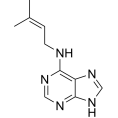
|
|
Chlormequat chloride
|
999-81-5
|
|
For more product details, please contact us: service@seebio.cn or Phone: +86 21 58183719 or Wechat: +86 158 0195 7578
